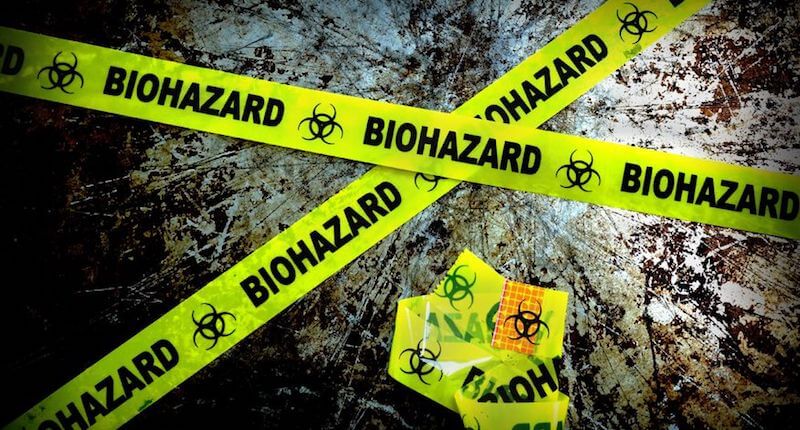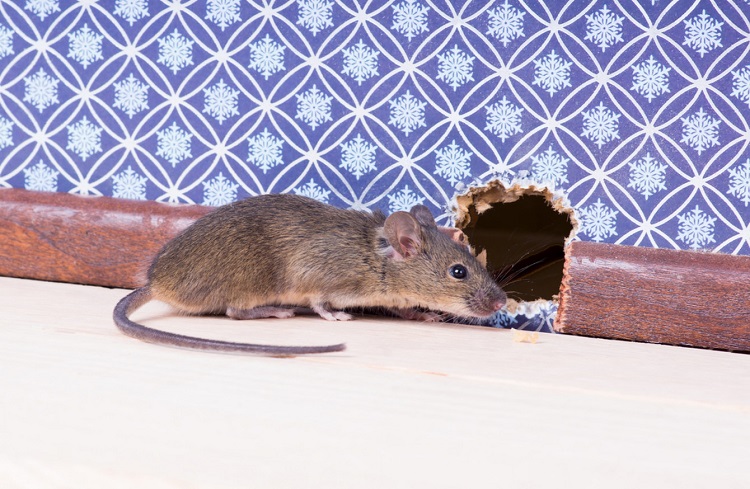Life in rural New Jersey offers peaceful landscapes, quiet living, and access to natural beauty—but it also brings certain hidden challenges that suburban homeowners may never face. Among the most serious and often overlooked is the risk of animal waste infestation in homes, barns, attics, and basements.
At PuroClean of Chester, we frequently respond to homes across Morris County and surrounding rural areas that have been impacted by raccoons in the attic, bat colonies in walls, or rodent nests under floorboards. These infestations aren’t just nuisances—they’re biohazard risks that can threaten your health, damage your property, and compromise your indoor air quality.
This article will guide you through the key dangers associated with animal waste, how to recognize an infestation, why DIY cleanup is risky, and how to prevent future issues. If you own a home in rural New Jersey, understanding the dangers of animal waste infestation is essential for protecting both your health and your home.
Biohazard Risks of Animal Waste

Many people are surprised to learn that the droppings and urine left behind by common wildlife pose significant health hazards. While you may not come into direct contact with the animals themselves, the biological matter they leave behind can linger, contaminate indoor environments, and lead to serious illnesses.
Diseases Carried by Wildlife Waste
Some of the most common pathogens associated with animal waste infestation include:
- Hantavirus: Found in the droppings and urine of deer mice and other rodents. It becomes airborne when waste dries and is disturbed—making it easy to inhale.
- Histoplasmosis: A respiratory disease linked to bat and bird droppings. The fungal spores thrive in guano piles and can become airborne in attics or barns.
- Leptospirosis: Transmitted via rat urine, this bacterial disease can cause fever, liver damage, and kidney failure in humans.
- Rabies (Indirect Risk): While rabies isn’t transmitted through waste, the presence of raccoons or bats—common rabies carriers—should trigger immediate caution and professional intervention.
In short, an animal waste infestation isn’t just gross—it’s a real and potentially dangerous biohazard.
Contamination of Insulation and Air Ducts
Another critical concern is the contamination of building materials. Rodents and raccoons often build nests in insulation, while their droppings and urine soak into attic floors or behind drywall. Bats, in particular, tend to colonize attics and leave large quantities of guano over time.
Once this waste infiltrates insulation or ductwork:
- It compromises indoor air quality
- Foul odors persist
- Mold may begin to grow
- HVAC systems can spread contaminants throughout the house
Homeowners may unknowingly breathe in airborne pathogens daily—highlighting the urgency of professional cleanup after an animal waste infestation.
Signs You Have an Infestation
Not sure if you’re dealing with a hidden infestation? While animals often remain out of sight, their presence leaves clear signs behind. Early detection is key to preventing serious damage.
Droppings
One of the most obvious signs is the presence of animal droppings. These can vary by species:
- Mouse or rat droppings are small, black pellets.
- Bat guano resembles mouse droppings but may accumulate in piles.
- Raccoon feces are larger, tubular, and often found in “latrine” areas like attic corners.
If you spot droppings, do not sweep or vacuum them, as this can aerosolize harmful particles.
Sounds and Scratching
Scratching in the walls, scampering in the attic, or squeaking sounds at night may signal that rodents or bats have moved in. Animals are most active at night, so listen for unusual noises after dark.
Odors
A strong ammonia-like smell is often associated with animal waste infestation. This comes from the buildup of urine, especially in enclosed spaces like attics, basements, or wall cavities. The smell may also intensify with humidity or heat.
Chewed Materials
Rodents are notorious for chewing:
- Electrical wiring (which can cause fire hazards)
- Insulation
- Cardboard, fabric, and wood
If you notice unexplained gnaw marks or shredded materials, it’s time to investigate further.
Dangers of DIY Cleanup
Once homeowners spot signs of animal waste infestation, their first instinct is often to grab gloves and cleaning supplies. But this can be dangerous without the proper protective equipment and cleanup protocols.
Safety Equipment Required
Professional biohazard remediation teams use:
- Respirators or full-face masks with HEPA filtration
- Disposable coveralls and gloves
- Containment barriers to prevent airborne spread
- Specialized disinfectants that neutralize both bacteria and viruses
Attempting to clean up animal waste without this equipment increases the risk of inhaling harmful particles or spreading contaminants through the home.
Hidden Contamination
Another common mistake in DIY cleanup is underestimating how far the contamination has spread. Waste may have soaked into wood framing, seeped into insulation, or settled into HVAC ductwork. Surface cleaning may make things look better temporarily but won’t eliminate the health hazard.
At PuroClean of Chester, we’ve been called in after failed DIY efforts made the problem worse. Only a trained professional can ensure the animal waste infestation is fully removed, sanitized, and safely contained.
Prevention and Monitoring
Stopping an infestation before it starts is always better than dealing with the aftermath. Here’s how you can reduce the risk of future animal intrusions and detect problems early.
Sealing Entry Points
Animals enter through surprisingly small openings. Mice can squeeze through holes the size of a dime, and bats need less than an inch. We recommend inspecting your home for gaps in:
- Rooflines and soffits
- Vents and chimney flues
- Foundation cracks
- Unsealed door and window frames
Install chimney caps, cover vents with hardware cloth, and seal gaps with steel wool or caulk to make your home less appealing to intruders.
Regular Inspections
Twice a year—ideally in spring and fall—perform a full inspection of your attic, basement, and exterior. Look for droppings, nesting materials, gnawed surfaces, and entry points.
Many of our clients schedule a yearly inspection with PuroClean of Chester as a proactive step. We assess for early signs of animal waste infestation, conduct air quality tests if needed, and provide a prevention plan based on your property’s layout and surrounding environment.
Conclusion: Animal Waste Infestation Risks
Rural living in New Jersey offers tranquility, space, and charm—but it also puts homeowners closer to wildlife. Unfortunately, with that proximity comes the increased risk of animal waste infestation in attics, basements, and crawlspaces. The health hazards are real, from viruses like hantavirus and bacteria like leptospirosis to compromised air quality and structural damage.
If you suspect—or have confirmed—an animal waste infestation, don’t take matters into your own hands. Improper cleanup can expose your family to airborne pathogens and leave hidden waste behind. Instead, call PuroClean of Chester, your local expert in biohazard remediation.
What You Can Do Today:
- Schedule a professional inspection
- Seal potential animal entry points
- Avoid DIY cleanup of droppings or urine
- Improve attic and crawlspace ventilation
Our certified technicians are trained to safely remove contaminated materials, sanitize affected areas, and restore your home to a safe, livable condition. We serve homeowners throughout Morris County and surrounding rural areas with 24/7 emergency service and same-day response options.
At PuroClean of Chester, we are dedicated to helping you with respect and care for your personal belongings and property in Chester, Annandale, Allamuchy, Beattystown, Stanhope, Bloomsbury, High Bridge, Netcong, Hackettstown, Washington, Budd Lake, Flanders, Long Valley, Warren County, Morris County, and surrounding areas.
Call PuroClean of Chester today at (973) 988-5588 for expert help with animal waste cleanup and prevention services.
